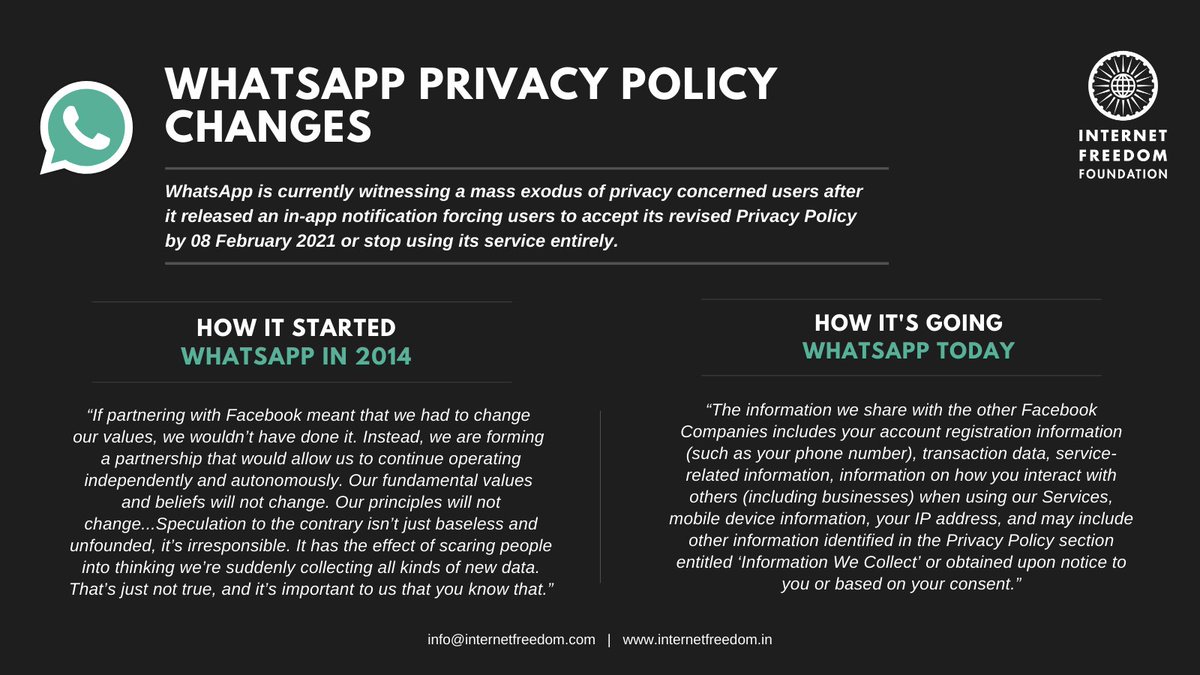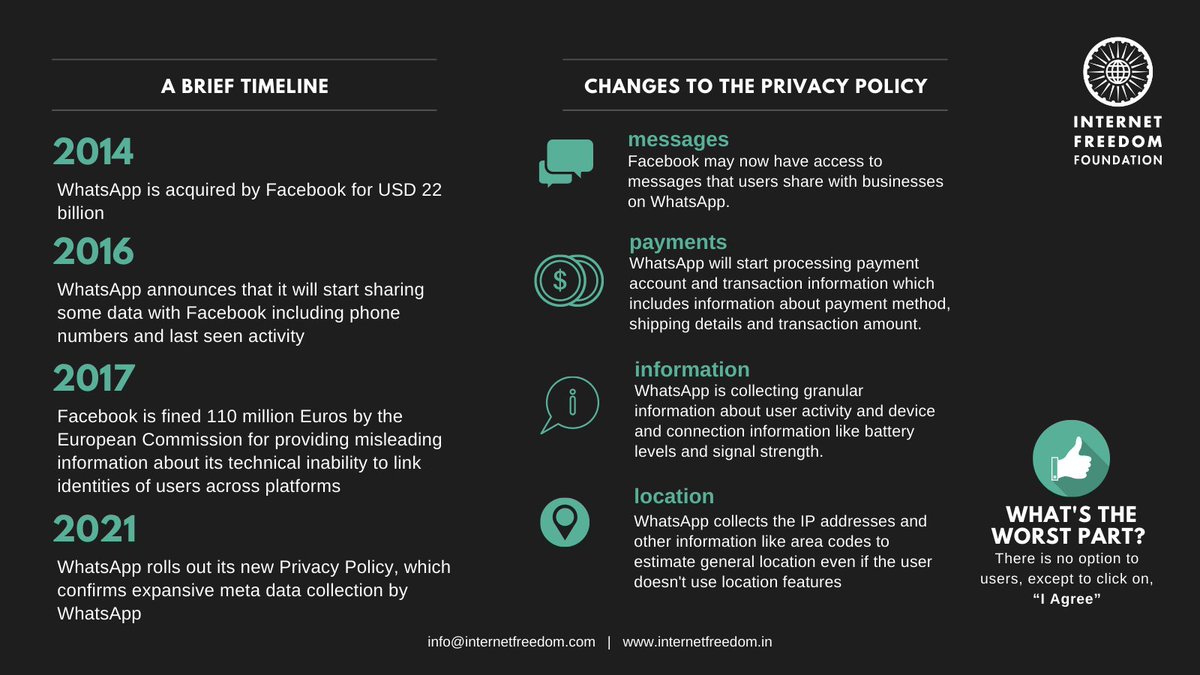
Thread 🧵
Alarmed by the recent changes to WhatsApp's Privacy Policy but confused about what exactly is going on? Well, we have got you covered with this explainer! 1/n
internetfreedom.in/explainer-what…
Alarmed by the recent changes to WhatsApp's Privacy Policy but confused about what exactly is going on? Well, we have got you covered with this explainer! 1/n
internetfreedom.in/explainer-what…

The latest changes to WhatsApp’s Privacy Policy cement the problematic status quo which has existed since the Policy was first updated in 2016. Here is a complete timeline of events and details of the changes made in 2021. 2/n 

The changes to WhatsApp’s Privacy Policy in 2016 are also the subject of pending litigation before the Supreme Court and IFF is an intervenor in the case. 3/n
internetfreedom.in/iff-will-repre…
internetfreedom.in/iff-will-repre…
Remember that we live in an attention economy and by linking our identities across multiple platforms, companies can build 360 degree profiles about us which can then be used to keep us endlessly doom scrolling to earn ad revenue. 4/n
It's time for us to reclaim our privacy and time! If you don't want to be forced to click "I Agree", here is what you can do:
✅Switch to a more secure platform like @signalapp.
✅ Join us in pushing for enactment of a strong data protection legislation in India. 5/n
✅Switch to a more secure platform like @signalapp.
✅ Join us in pushing for enactment of a strong data protection legislation in India. 5/n
If you found this explainer useful, please consider supporting us by becoming an IFF member so we can continue making conversations about data privacy more accessible. 6/n
internetfreedom.in/donate/
internetfreedom.in/donate/
• • •
Missing some Tweet in this thread? You can try to
force a refresh




